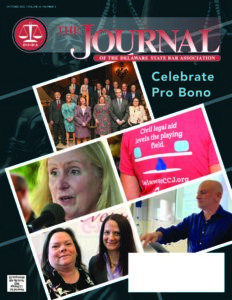I was largely motivated to become a legal aid advocate for two main reasons. Firstly, I have always wanted to work with and hopefully help people; how I thought I would do so has changed but that has always been very important to me. Secondly, I genuinely believe a better world is possible and that world is worth fighting for. To be clear, I absolutely do not think my legal career will bring about revolution or a just society for all. However, in the interim, working with individuals from exploited and oppressed communities, those who are legally underserved, and hopefully achieving better outcomes while also looking to build a more equitable society in the long term is a large part of my motivation.
My journey to becoming a legal aid advocate started with a sociology course that I took as a sophomore in undergrad. The class focused on medical sociology, my first real introduction to the field of public health. As I was a chemistry major at the time, medical school seemed like the logical next step but after learning about public health, I was fascinated by the idea of preventative healthcare. More specifically, the idea that while doctors and other medical practitioners are incredibly important, it is more reactive in nature whereas, public health is more proactive by addressing root causes that lead to negative health outcomes. Major contributors to negative health outcomes in this country are social determinants (food security, housing, education, etc.) that can be addressed by legal interventions. That intersection of public health and law is important in bridging gaps in policy and access that lower income people and families, especially Black people and other people of color, often fall into. Now, here I am, working for CLASI as part of their Medical-Legal Partnership.
I was interested in joining CLASI because of the valuable work being done here. The organization’s mission of combatting injustice through creative and persistent civil legal advocacy is, unsurprisingly, particularly important to me. And given my interest in the intersection of public health and law, the Medical-Legal Partnership is a perfect fit. I worked with a couple legal aid organizations during my time at Temple Law in Philadelphia but as I only graduated in May 2020 and started at CLASI in December 2020, I am very new to doing this full-time.
As for systemic changes, ideally, there would be a better, more equitable world where Iegal aid advocates have less work due to our clients needing our services less. In the meantime, I really think a civil Gideon is important. Law is an inherently elitist institution that, by design, makes it incredibly inaccessible for those without the means to access it. As such, this notion of justice is unattainable for many. The right to a lawyer in civil proceedings, as is the case in criminal proceedings, is at least a start in increasing that access.
Charles Hamilton Houston, former Dean of Howard University Law School and special counsel for the NAACP, once said “a lawyer’s either a social engineer or a parasite on society.” This quote has stuck with me since I first learned it and continues to motivate me as I strive to not be the latter. More seriously, if it was not already obvious, I continue to be motivated by my unwavering belief that better things are possible.

